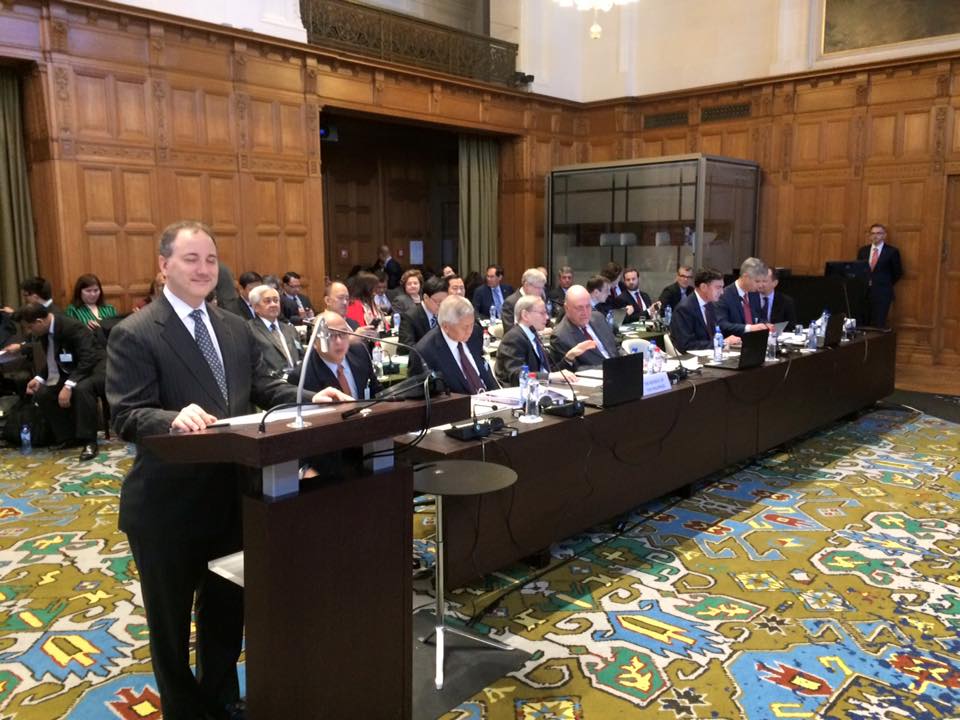
(Photo from Deputy Presidential Spokesperson Abigail Valte’s official Facebook page)
Quoting Andrew Lowenstein, one of the counsels representing the Philippines at The Permanent Court of Arbitration in The Hague, deputy presidential spokesperson Abigail Valte said yesterday that China’s claim in the West Philippine Sea was “hopeless and indefensible.”
The Permanent Court of Arbitration in The Hague heard oral arguments on Wednesday regarding the case filed by the Philippines that aims to clarify its territorial entitlement and appeal China’s claim in the West Philippine Sea, the Philippine Star reported.
The Hague has a released a bulletin where Loewenstein said that China has no basis to claim historical rights. According to Lane, the artificial islands built by China that they claim as their territories in the West Philippine Sea could not be considered as reference points.
Philippines’ principal counsel in The Hague, Paul Reichler, said that China’s claim to historical rights that they derived from the United Nations Convention on the Laws of the Seas (UNCLOS) “in fact do not exist under the provisions of the convention.”
Even for the sake of argument that historical claim could exist at the UNCLOS, China could not meet the requirements to prove their claim which is having “a continuous exercise of exclusive control for a long period of time over a specific area.”
China’s construction of artificial islands in the West Philippine Sea have also destroyed Philippines’ marine resources and have prevented Filipinos from fishing, Loewenstein added.
“Sands discussed China’s interference with the Philippines’ exercise of sovereign rights under the UNCLOS with respect to living and non-living resources in the exclusive economic zone,” said Valte, citing the bulletin.
“Sands gave as examples several incidents involving service contracts given by the Department of Energy wherein the private companies were prevented from exploration,” she added.
“In addition, the fishing ban mandated by China’s Ministry of Agriculture covering even areas in the Philippines’ EEZ was also discussed,” the bulletin read.
Despite persistent appeal from the Philippines to stop, China’s violation of the UNCLOS were “flagrant and persistent” and “they continue today,” Valte said, citing the bulletin.
Chinese Foreign Ministry spokesman Hong Lei told reporters in Beijing that China has “indisputable” sovereignty in the South China Sea.
“The Philippines’ unilateral initiation and obstinate pushing forward of the South China Sea arbitration is a political provocation under the cloak of law,” he said.
“It is in essence not an effort to settle disputes but an attempt to negate China’s territorial sovereignty and maritime rights and interests in the South China Sea,” Hong added.